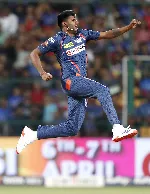Schooling in India: State Level
The state level schools are established in order to provide access for all children to primary school or its equivalent non-formal education. The main objective was to reduce overall dropout rates, increase average learning achievement levels and reduce gaps in enrollments, dropouts, and learning among gender and social groups. The state governments maintain the expenditures on elementary education at the state level but had discretion to re-allocate expenditures across the districts. The major factors of the state level education are the community mobilization and participation, text books based on minimum levels of learning with the stress on the availability of books in local languages.
Some states have also developed teacher support material, subject wise/ standard wise teacher’s manual to help teachers teach the state syllabus based books effectively. There is a general perception that the state syllabus is inferior to CBSE/ICSE syllabi.
Schooling in India: Central Board of Secondary Education
The Central Board of Secondary Education is a board of school education in India. The CBSE prepares the syllabus for students from Lower Kindergarten (L.K.G) to Class 12, for schools affiliated with it. The Central Board of Secondary Education was established in order to achieve the following objectives.
- To prescribe conditions of examinations and conduct public examinations at the end of Class X and XII. To grant qualifying certificates to successful candidates of the affiliated schools.
- To fulfill the educational requirements of those students whose parents were employed in transferable jobs.
- To prescribe and update the courses of instructions for examinations.
- To affiliate institutions for the purpose of examination and raise the academic standards of the country.
The CBSE board promotes innovations in teaching learning methodologies by devising student friendly and student centered paradigms. It reforms in examinations and evaluation practices and encourages the skill learning by adding job oriented and job linked inputs. It also regularly updates the pedagogical skills of the teachers and administrators by conducting in-service training programmes, workshops, etc. The board conducts two board examinations such as the All India Secondary School Examination for Class 10 and the All India Senior School Certificate Examination for Class 12, which is a school-leaving examination. There is also a prescribed syllabus for these examinations. Many private schools throughout the country are affiliated with the CBSE. The CBSE board also conducts the All India Engineering Entrance Examination (AIEEE) which is a common entrance examination on all-India basis for admission to engineering and architecture/planning programmes in the country. In the same way, the Pre-medical and the Pre-dental Tests (PMT/PDT) are also conducted for medical and dental colleges after the 10+2 exams.
Regional Offices
- The Central board of Secondary Education, Plot No. 1630 A, "J" Block, 15th Main Road, Anna Nagar West, Chennai.
- The Central Board of Secondary Education, Rajgarh Road, Rajgarh Tinali, Guwahati-781 003
- The Central Board of Secondary Education, Todarmal Marg, Ajmer-305 001
- The Central Board of Secondary Education, Sector- 5 , Panchkula - 134109 (Haryana)
- The Central Board of Secondary Education, 35 B, Civil Station, M.G. Marg, Civil Lines, Allahabad-211 015
- The Central Board of Secondary Education, Shiksha Kendra, 2 Community Centre, Preet Vihar, New Delhi-110 092.
Schooling in India: National Council of Educational Research and Training (NCERT)
The National Council of Educational Research and Training (NCERT) is an apex body set up by the Government of India, with headquarters at New Delhi, to assist and advise the Central and State Governments on academic matters related to school education. The organization has been identified by the MHRD (Department of Education), Government of India as the nodal centre for strengthening value education in the country at school level. The NCERT provides academic and technical support for improvement of school education through its centers which are as given below.
- NIE, New Delhi
- CIET, New Delhi
- PSSCIVE, Bhopal
- RIE, Ajmer
- RIE, Bhopal
- RIE, Bhubaneswar
- RIE, Mysore
- NE-RIE, Shillong
The NCERT undertakes the following programmes and activities.
· Research - The NCERT performs the important functions of conducting and supporting research and offers training in educational research methodology. The different Departments of the National Institute of Education (NIE), Regional Institutes of Education (RIEs), Central Institute of Educational Technology (CIET) and Pandit Sunderlal Sharma Central Institute of Vocational Education (PSSCIVE) undertake programmes of research related to different aspects of school education, including teacher education. The NCERT also supports research programmes of other nstitutions/organisations by providing financial assistance and academic guidance. There are research fellowships offered to encourage studies in school education to create a research base for developmental, training and extension programmes and to create a pool of competent research workers.
· Development - The major developmental activities of NCERT are the development and renewal of curricula and instructional materials for various levels of school education and making them relevant to changing needs of children and society.
· Training - The NCERT offers the pre-service and in-service training of teachers at various levels such as pre-primary, elementary, secondary and higher secondary, and also in such areas as vocational education, educational technology, guidance and counselling, and special education.
· Extension - The NCERT conducts comprehensive extension programmes through various Departments of the NIE, RIEs, CIET, PSSCIVE and the offices of the Field Advisers in the states with the purpose of providing assistance to various categories of personnel, including teachers, teacher educators, educational administrators, question-paper setters, textbook writers, etc. The extension activities include conferences, seminars, workshops and competitions.
· Publication and Dissemination - The NCERT publishes textbooks for different school subjects for Classes I to XII apart from publishing many workbooks, teachers guides, supplementary readers, research reports, etc. Besides, it publishes instructional materials for the use of teacher educators, teacher trainees and in-service teachers.
There are six journals published by NCERT for dissemination of educational information.
o The Primary Teacher is published both in English and Hindi giving meaningful and relevant educational inputs to primary school teachers
o The School Science discusses on various aspects of science education
o The Journal of Indian Education encourages original and critical thinking in education through discussion on current educational issues
o The Indian Educational Review contains research articles
o The Bharatiya Adhunik Shiksha, published in Hindi, encourages critical thinking in education on contemporary issues.
o The NCERT Newsletter published in English and Hindi.
· Exchange Programmes - The NCERT interacts with UNESCO, UNICEF, UNDP, NFPA and the World Bank to study specific educational problems and to arrange training programmes for personnel from developing countries. It also acts as the Secretariat of the National Development Group (NDG) for Educational Innovations.
Indian Certificate of Secondary Education
The Council for the Indian School Certificate Examinations is committed to provide high quality educational endeavours, by empowering the students to contribute towards a humane, just and pluralistic society. The Council promotes the education of science, literature, the fine arts and the diffusion of useful knowledge by conducting school examination through the medium of English. There are three examinations conducted by ICSE.
- The Indian Certificate of Secondary Education (ICSE – Year 10)
- The Indian School Certificate (ISC – Year 12)
- The Certificate in Vocational Education (CVE – Year 12).
The ICSE (YEAR 10)
The ICSE conducts Class 10 examination in accordance with the recommendations of the new education policy 1986 in English Medium. The candidates appearing for the examination have to study seven subjects, with anywhere from 1 to 3 papers in each subject.
The ISC (YEAR 12)
The Indian School Certificate Examination is an examination conducted in English medium in accordance with the recommendations of the new education policy 1986, after a two–year course of studies beyond the Indian Certificate of Secondary Education (Year 10) examination or its equivalent.
The C.V.E (Year 12)
The Certificate of Vocational Educational (CVE – 12) in English medium has been conducted in accordance with the recommendations of the Ministry of Human Resource Development (MHRD) through the Joint Council of Vocational Education (JCVE) established under the National Policy of Education 1986. This examination can be taken by candidates after a two year course of studies beyond the Indian Certificate of Secondary Education (Year 10) examination or its equivalent.
Select A Nakshatra
- Aswathi (Ashwini)
- Bharani
- Karthika (Krittika)
- Rohini
- Makayiram (Mrighasira)
- Thiruvathira (Ardra)
- Punartham (Punarvasu)
- Pooyam (Pushya)
- Ayilyam (Ashlesha)
- Makam (Magha)
- Pooram (Purva Phalguni)
- Uthram (Uttara Phalguni)
- Atham (Hasta)
- Chithira (Chitra)
- Chothi (Swati)
- Vishakham (Vishaka)
- Anizham (Anuradha)
- Trikketta (Jyestha)
- Moolam (Moola)
- Pooradam (Purvashada)
- Uthradam (Uttarashada)
- Thiruvonam (Sharavan)
- Avittam (Dhanishta)
- Chathayam (Shatabhisha)
- Poorattathi (Purvabhadra)
- Uthrattathi (Uttarabhadra)
- Revathi (Revati)
Select Your Sun Sign






